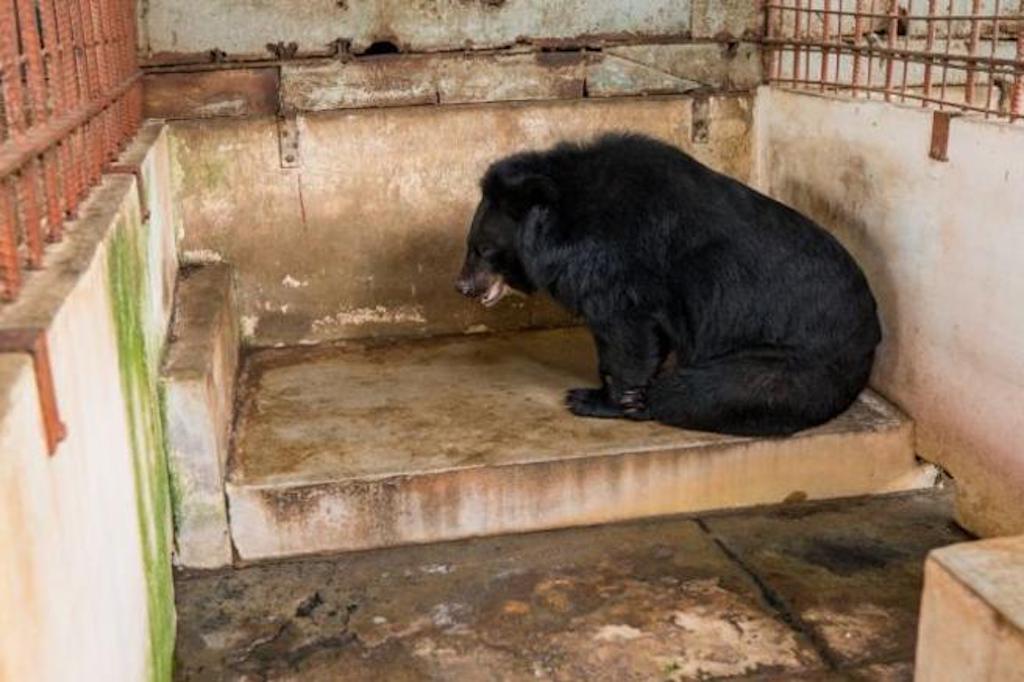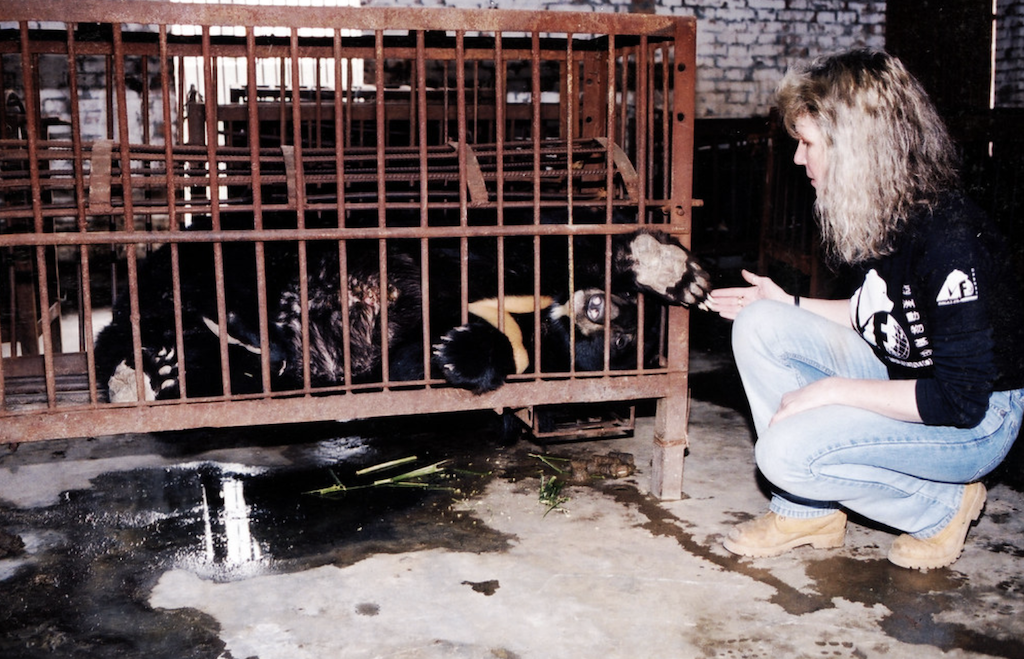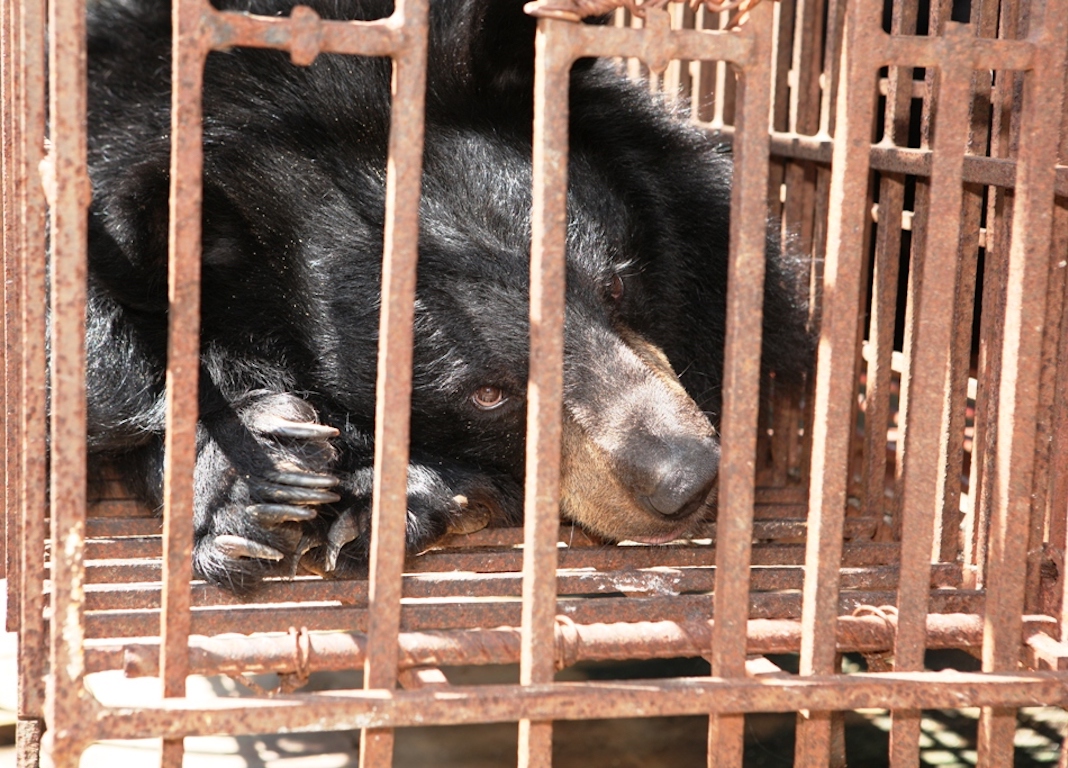4 Mins Read
In a list of treatments for coronavirus just published by the Chinese National Health Commission, the authorities recommended taking injections that contain bear bile powder. The health advice contradicts the government’s decision to permanently ban the trade and consumption of wild animals less than a month ago. Conservationists are pointing to not only the cruel and inhumane practices behind the illicit bear bile industry, but the public health dangers that are left unmitigated if the authorities fail to impose a genuine crackdown on all forms of wild animal business.
China’s National Health Commission has recommended using Tan Re Qing, an injection that contains bear bile, to treat severe and critical Covid-19 cases on a list of both traditional and western treatments published on March 4. While bear bile, which is secreted by the liver and stored in the gallbladder contains ursodiol, an acid that helps dissolve gallstones and treat liver disease, the acid has been globally available as a synthetic drug for decades and there is no evidence it is effective for treating coronavirus specifically.
It comes less than a month after China decided to permanently shut down the country’s illicit US$74 billion wildlife farming industry, which was an effective extension of the previous temporary policy introduced in January that prohibits the illegal trade and consumption of non-aquatic wild animals.
Conservationists have cautioned against overoptimism about the permanent ban, initially highlighting that a number of wildlife items that are taken for traditional medicinal purposes will still be exempt from the ban. In recent weeks, as much of the illegal trade has shifted online, this loophole has meant that e-commerce sites and delivery operators have struggled to restrict wildlife products that are advertised as for traditional Chinese medicinal uses.

Now, with the newly published advice, conservationists are saying that the government is taking a contradictory approach to the wildlife ban – shutting down the live trade in animals for food, but still actively promoting the trade in animal parts as a traditional treatment.
This is particularly worrying given that a number of recent studies have found an association between the coronavirus and wild animals that tend to be poached for medicinal uses. One study, for instance, proposed that pangolins are the probable intermediary host of the coronavirus that jumped to infect humans – and pangolins are poached for their keratin scales, a common ingredient in traditional Chinese medicine.
Despite there being a synthetic form of the medicinal acid extracted from bears, Many traditional Chinese practitioners continue to use bear bile-containing Tan Re Qing to treat upper respiratory infections. Asiatic black bears and sun bears – both critically endangered species – as well as brown bears are held in captivity on farms to have bile extracted from their gall bladders on a regular basis for profit in the traditional Asian medicine market.
In addition to propping up an unnecessarily cruel and inhumane bear bile trade as well as allowing loopholes in the wildlife ban, which raises the risk of public health epidemics, China’s recent recommendation of the use of bear bile may actually be further harming human health. The World Health Organisation (WHO) has made clear that there is yet to be any cure for Covid-19, and dangerous health consequences may follow if people believe that bear bile can effectively treat coronavirus.

Speaking to Green Queen, founder and CEO of animal welfare charity Animals Asia Jill Robinson said: “We shouldn’t be relying on wildlife products like bear bile as the solution to combat a deadly virus that appears to have originated from wildlife. TCM has thousands of years of practical application, together with a philosophy of balancing harmony and peace with the environment. Such medicines should heal without harm.”
The charity recently pleaded the public for donations to their Crisis Action Fund to help their staff and volunteers keep their Chengdu Bear Sanctuary running. Located in Sichuan province, next to Hubei where the coronavirus outbreak originally began, the sanctuary has experienced shortages of food, water and crucial medical supplies for the bears.
In order to fully mitigate the threat to animal species, the environment and public health, the wildlife trade in all its forms – food, non-food and medicinal uses – must be clamped down. Individually, one of the most effective steps we can take is to remove all consumption of animal products altogether, which is currently propping up the inhumane global trade in animals and unsustainable production that leaves behind a huge burden on our planet.
Please consider helping Animals Asia by donating to their Crisis Action Fund to keep their China Bear Sanctuary alive. Every contribution, no matter how small, will support their crucial conservation work.
Read our earlier news coverage of Covid-19 here and more news on animal rights here.
Lead image courtesy of Animals Asia.



